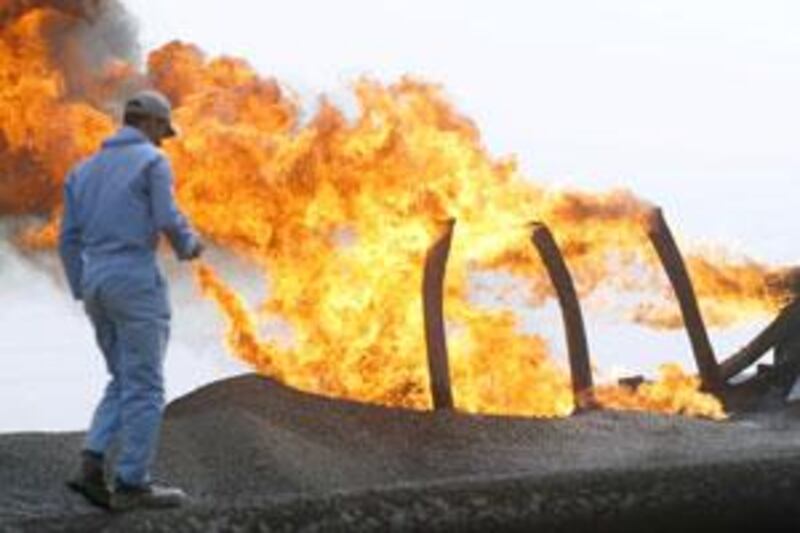VIENNA // Iraq's oil sector is changing, and so could the identity of the man in charge. Asked if he hoped to keep his post as the minister of oil in the next Iraqi government, Dr Hussain al Shahristani said he would be happy to step aside. "I wouldn't try to stay unless I was forced to stay. It wouldn't be my wish," Dr al Shahristani said before yesterday's OPEC meeting.
Another imminent change will be Iraq's tally of its oil reserves, which for years have been estimated as the world's third largest, at about 115 billion barrels. The estimate of proved reserves "is going to go higher", Dr al Shahristani said. "We're revising it now." In the past two years, foreign oil companies drilling in Iraqi Kurdistan have reported at least three world-class discoveries. Canada's Heritage Oil has struck an oil deposit that may contain as much as 3 billion barrels of recoverable crude.
Gulf Keystone, a Bermuda-registered company, estimates it has found at least another 1.5 billion barrels. The Hungarian oil group MOL last week reported a significant oil find that analysts said might contain 1 billion barrels of crude. In addition, a number of the world's biggest oil companies have recently pored over data on Iraq's main oil reservoirs as they prepared to bid for long-term service contracts to raise production.
Dr al Shahristani said Iraq was producing 2.5 million barrels per day (bpd) of oil and exporting more than 2 million bpd, making it the third largest OPEC oil exporter after Saudi Arabia and Iran. In the next few months, Iraq could boost exports by as much as 100,000 bpd by restarting Kurdish crude exports that were halted last September in a long-running dispute over oil jurisdiction between the semi-autonomous regional government and Baghdad.
"We expect to resume exports from the Tawke field [in Kurdistan] shortly, within a month," Dr al Shahristani said. "The issue of exporting oil from those fields is a completely separate issue from the contracts that were signed." Within seven years, Iraq would increase its production capacity, although not necessarily its output, to 11 million bpd, the oil minister predicted. That could mean export capacity of up to 10 million bpd, rivalling that of the world's top oil exporters, Russia and Saudi Arabia.
Iraq would not consider rejoining OPEC's quota system until its output capacity had risen to 4 million bpd, possibly as soon as two years from now, Dr al Shahristani said. Iraq is the only OPEC member without a production quota. It was granted an exemption to refurbish an oil sector ravaged by decades of war and mismanagement. "Iraq is a founder member [of OPEC]. They have a right to develop their reserves," said Abdulla el Badri, the OPEC secretary general.
"At the end of the day, we will accommodate Iraq for the sake of the Iraqi people. I am sure this will not be a problem for OPEC." @Email:tcarlisle@thenational.ae





